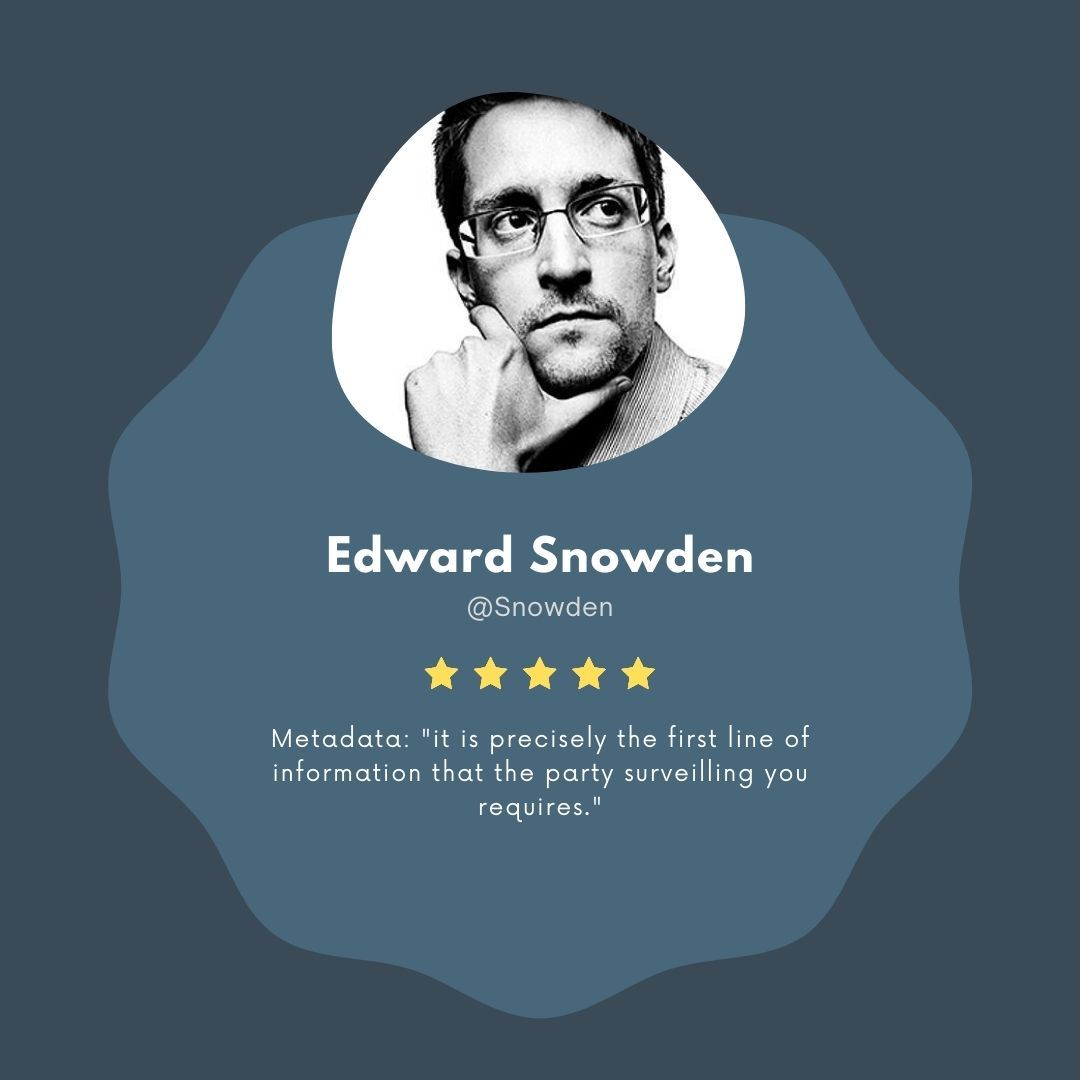There is no deleting your Permanent Record

The Book in 3 Sentences
Edward Snowden’s biographical “Permanent Record” seeks to explain how his upbringing, external influences, and views on technology and democracy led him to become a whistleblower against government mass surveillance of citizens. Permanent Record traces his family's long involvement in civic duties, his childhood fascination with computers, and hacking. The book describes his path from raising ethical concerns against governmental mechanisms that allow surveillance, his mental process and activities both before and after disclosing classified information, and the toll it has taken in his personal and family life.
My Top 3 Quotes
“I myself had sworn an oath of service not to an agency, not even a government, but to the public, in support and defense of the Constitution, whose guarantee of civil liberties had been so flagrantly violated.”
“In essence, the agency was arguing that the speed and volume of contemporary communication had outpaced, and outgrown, American law,- not court, not even a secret court, could issue enough individually targeted warrants fast enough to keep up - and that a truly global world required a truly global intelligence agency.”
The data we generated just by living - or just by letting ourselves be surveilled while living - would enrich private enterprise and impoverish our private existence in equal measure.”
By Edward Snowden
328 pp. Metropolitan Books. $13.89
Constitutional Law was my favorite 1L class because it was the closest that resembled political science, my concentration in undergraduate school. While studying the Dormant Commerce Clause was humdrum, I found the erudite discussions around the Equal Protection Clause, the Fourth and Fourteenth Amendment, and Substantive Due Process fascinating. During my 3L, I took Criminal Procedure (with the same Constitutional Law professor), where our trenchant analysis of searches and seizures, probable cause, warrant requirements, and seizures and arrests, captivated the class. While in class, I often asked myself why these vital subjects about protecting citizens against government abuse were not directly taught in public schools.
I picked Edward Snowden’s Permanent Record with a sense of trepidation because even though I had attended law school and understood the implications of government mass surveillance, I had been an IT in the US Navy, a system administrator to classified systems just like Snowden. In a way, reading Permanent Record felt like both worlds had collided.
In Permanent Record, Snowden gave a chronological account of his life, including his views on government, privacy, and technology, that ultimately led him to be a whistleblower. The internet that he grew up with in the 1990s, fed into his insatiable curiosity to learn and develop new ideas. He described Web 1.0 as a way of “fostering experimentation and originality of expression, and by its emphasis on the creative primacy of the individual.” Once the government and corporations took over in the 2000s, that sense of wonder changed when “users’ online personas” was linked “to their offline legal entity.”
Snowden does not manifest his reasons for disclosing classified information directly, but rather it is a narrative that the reader has to weave together. Snowden grew up apolitical and disliked the constraints of public education. He concotect plans, or “hacks”, to do the bare minimum. It was a collection of life events that led him to become a whistleblower - supporting without hesitation the Iraq War after 9/11, joining the Army but being medically separated, joining the CIA/NSA with top secret clearance, getting the “keys to the kingdom” doing various jobs in Geneva, Tokyo, and Hawaii, obtaining access to classified information, and reading voraciously.
What Snowden read was how all three branches of government had eroded civil liberties. The Foreign Intelligence Surveillance Court (FISC) rubber stamped surveillance requests, President Obama refused to call for a full congressional investigation of President Bush Surveillance Programs, and Congress did not question officials in charge of those programs. Snowden described being a whistleblower as “a person who through hard experience has concluded that their life inside an institution has become incompatible with the principles developed in - and the loyalty owed to- the greater society outside it, to which that institution should be accountable.” Snowden became a whistleblower to seek reform and put public pressure on those responsible.
Snowden gives a fascinating account of this technical work, which was the part I found most interesting to read. He is very gifted in describing very technical and complex mechanisms in a simple manner that is easy for the reader to comprehend. One of the most interesting sections of the book is how he managed to download, save, and remove classified information. He even has a whole chapter about encryption and how when we delete files from our personal computer, we really do not permanently delete them. Snowden calls encryption the “single best hope for fighting surveillance of any kind.”
Permanent Record gives a compelling account of Snowden's life history, his work, and personal relations. But Snowden’s book might leave readers wanting a more in depth analysis of his internal struggle and reasons for releasing classified information. Those reasons felt glossed over with a small mention of how the Fourth, Fifth, Six, Seven, and Eighth Amendments were violated, and thus, he had to disclose the classified information. Snowden’s analysis would benefit from addressing counter arguments to the American government, indicating that by disclosing classified information, Snowden would be putting American life at risk.
Snowden wanted people to know they were being monitored by the government without a warrant, and in his last chapter, he highlighted that we are being monitored simply by reading his book. Snowden also leaves the reader with something bigger, a clearer understanding of government mass surveillance and government secrecy, and the struggles for individuals to maintain their privacy.
The links to the book are affiliate links. This means that, at zero cost to you, I will earn an affiliate commission if you click through the link and finalize a purchase.
